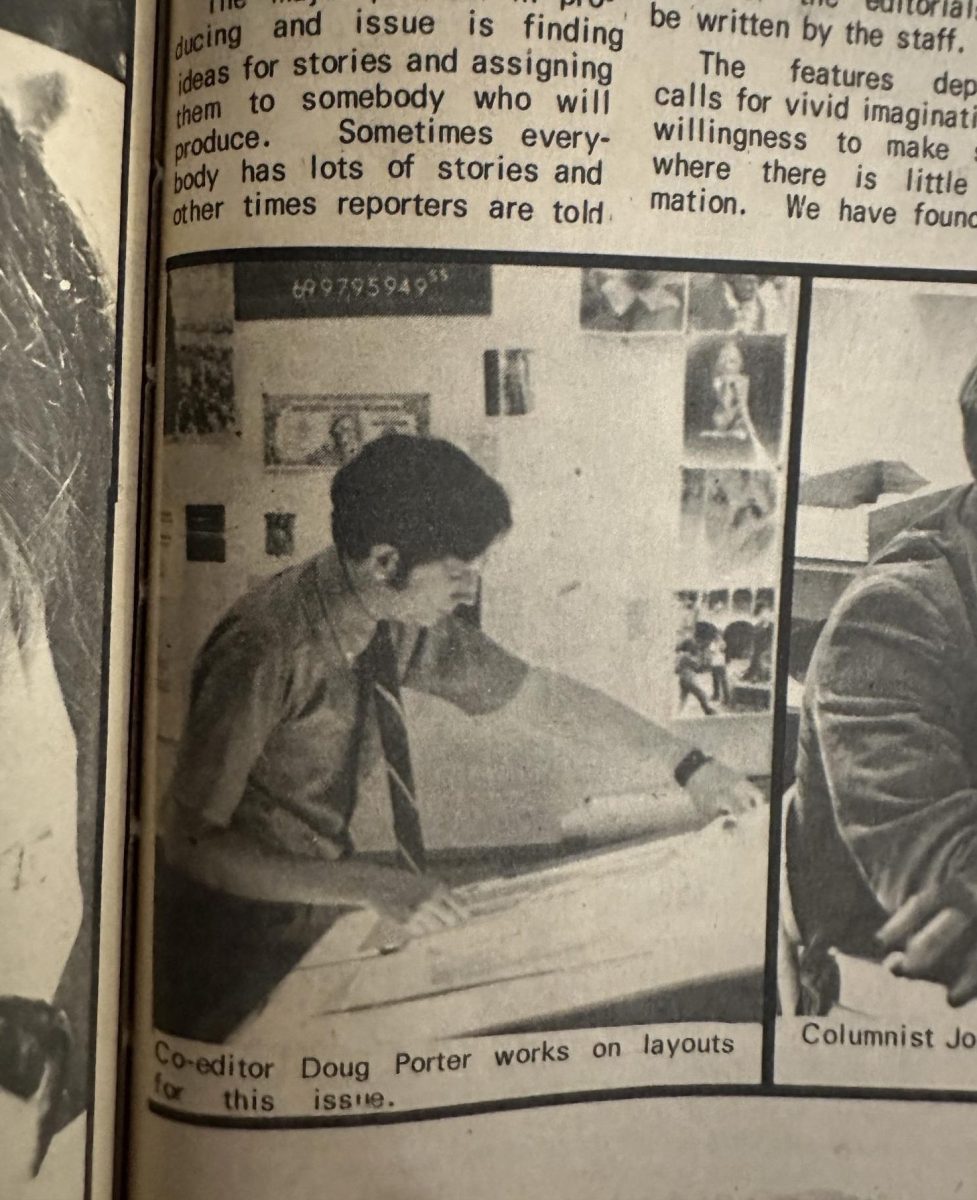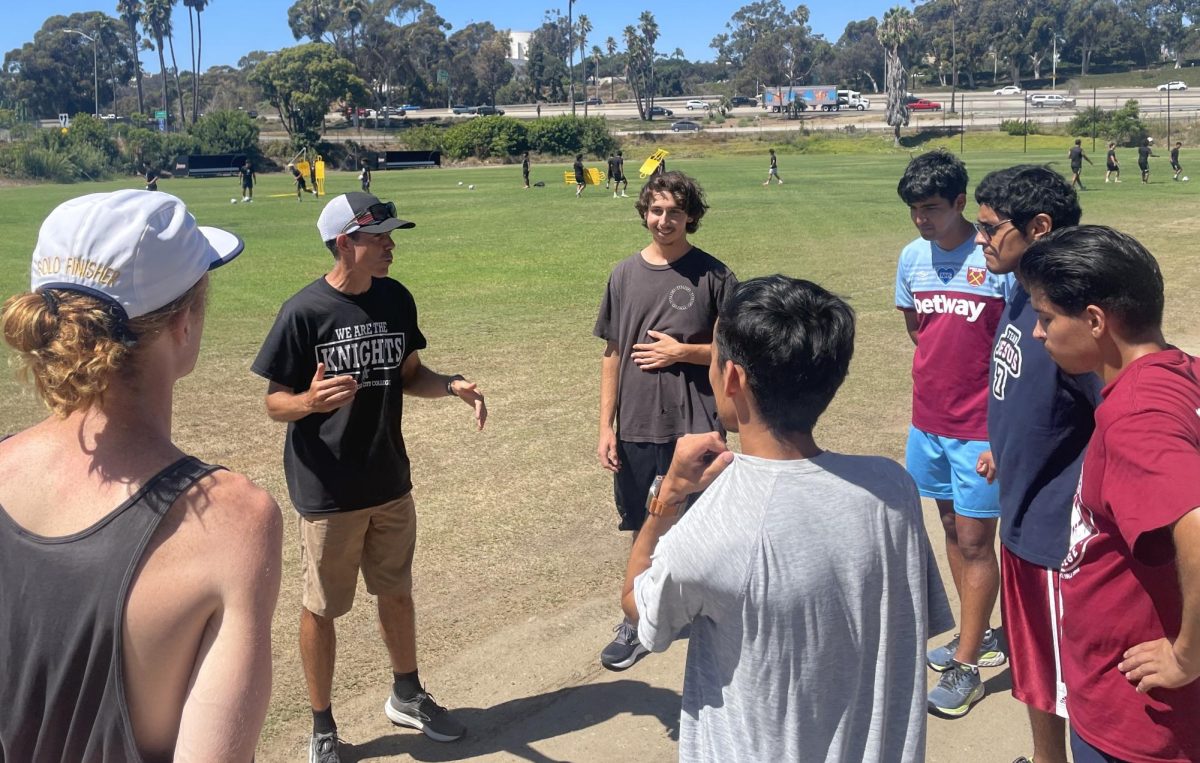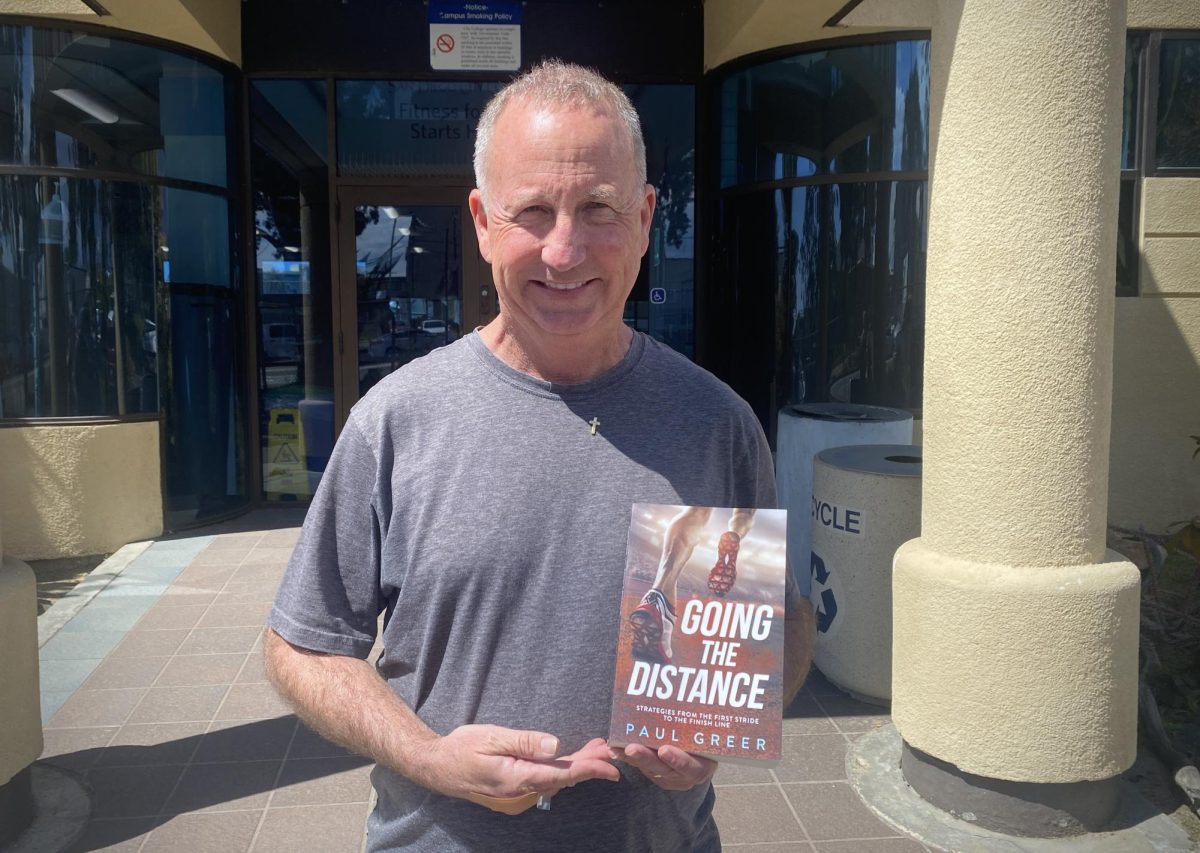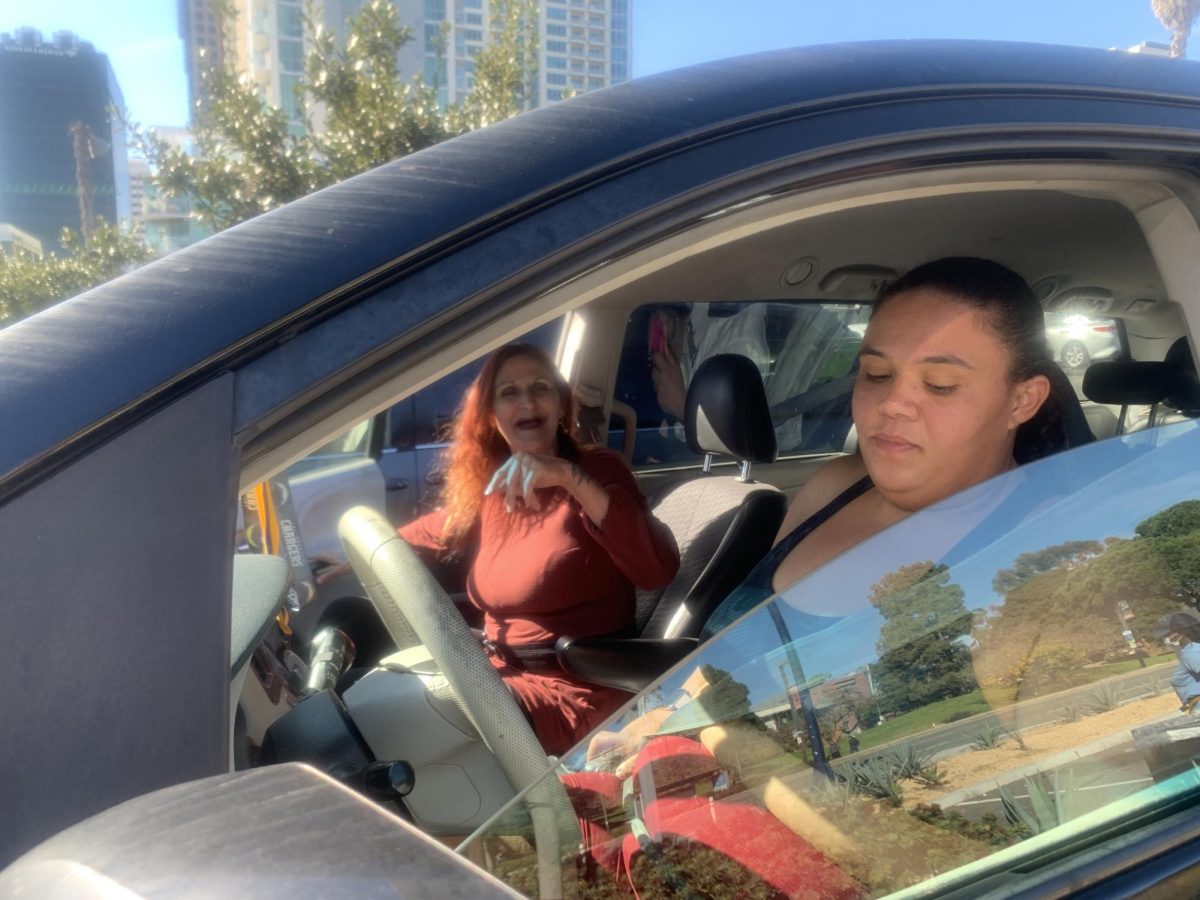Angela Ang
City Times
Imagine a beautiful, lush “food forest” of fruit trees and vegetables, a little paradise on the edge of campus; broccoli, snow peas, beans, squash, cabbage, potatoes, herbs and fruiting vines of passion fruit, grapes and berries growing happily on rich brown soil; a thriving farm growing food and selling food; and an educational and community resource for people learning to grow their own food and live healthier lives.
Such is the vision of Julia Dashe and Paul Maschka, urban farmers with the San Diego Roots Sustainable Food Project, and Karon Klipple, chair of City College’s Environmental Stewardship Committee, for Seeds at City, an urban farm located on campus at the corner of Park and C.
Seeds at City is the first-ever college or university urban farm program in San Diego County.
“There are no schools in San Diego County that teach agriculture, especially sustainable agriculture,” Maschka said.
Klipple said that other colleges are following suit now like Mesa College and San Diego State University.
The farm will teach students and the community about sustainable permaculture, agriculture, nutrition and leadership. Reflecting Roots’ broad vision, the farm will become a sustainable food system in San Diego, a resource for people starting gardens of their own, and an educational center and farm that will be a place to grow food but also train farmers, Dashe said. Plans are in the works to offer a City College sustainable agriculture certificate program in a few years.
“Most of the students and the community don’t know much about organic means and benefits of good food,” said Klipple. “The mission is to educate people about what’s possible in terms of urban food production and give them opportunities to make a tangible difference to the environment.”
Farmers, students, staff and volunteers began work on the farm on June 7 by hauling in compost and mulch to turn the 1/3 acre of grassy lawn into good soil.
“We’re really going to grow soil then the soil is going to grow plants,” Maschka said.
One of the major challenges facing the farm is the poor soil quality. It takes three years to build good soil. Another challenge is working in areas that need to be fenced in. Unfortunately, because of the high risk of theft and vandalism, the farm will need a perimeter fence. The farm also faces a short supply of tools and still needs to build a watering system, a greenhouse, and a potting shed while availing of grants, donations, and fundraisers.
However, in the past two months, farmers, students and volunteers have been busy clearing brush, loosening and aerating the soil, building compost bins, constructing a bridge, planting herbs and salad greens, making a path and designing artwork for the fence.
“I’m really glad we’re doing it from the ground up,” said Adam Taylor, 28, a junior in environmental science. “We’re the first group of students in here this semester. We’ve been doing everything from just getting the land ready to work with, to building small sheds, and compost heaps, and getting everything just going.”
Kim Lopez, 25, a sophomore of food and nutrition, said she feels really happy to be a part of the program.
“Every day is amazing because you learn something new,” she said. “Your thumb gets greener every day.”
Marc Bailey, 35, a part-time engineer and volunteer, agrees.
“It’s great. Paul and Julia are so knowledgeable and have so much experience that everyday it’s learning hands-on, which is so different from learning from books,” Bailey said. “Seeing how it’s actually done and just having that wisdom there . allows me to . be confident in trying things (in my own garden) since we’ve already done it here. I can do it on my own.”
“It’s a lot of fun. Julia is a fun character. She likes to hula hoop, and get things going, and singing songs,” Taylor added. “And Paul is basically an encyclopedia of knowledge. We haven’t stumped him yet. He’s great to work with.”
Klipple said that graphic design students will also be working on branding, logo design and literature for the farm. Students in Free Enterprise (SIFE) will eventually be involved in farmers markets and other entrepreneurships, such as green-collar job training, biodiesel and recycling buy-back on campus. Biology students will also be involved as part of an honors course in service learning.
The cafeteria is already giving food-prep waste to the farm for compost. There are ideas from the cafeteria manager for a “harvest festival” when the first crop comes in and an idea from the district food services manager to introduce vegan and vegetable options in the fall, as well as eco-friendly and biodegradable products.
Maschka predicts that the farm will be productive in two to five years and will need at least three ways to market its produce: through Community Supported Agriculture (CSA), farmers markets and local restaurants.
Formerly the City College Urban Farm, Seeds at City is a collaborative effort between San Diego Roots Sustainable Food Project and the Environmental Stewardship Committee. The idea for the farm began when Klipple read a newspaper article about a similar program at Morse High School and met with Dashe, the gardening coordinator. Together, they made a plan and raised the money. The San Diego Foundation contributed a $22,000 grant, Klipple said, which helps to fund student scholarships and farmer salaries.
“I think it says a lot about City College to have the vision and courage to start this program when no other junior colleges were doing this in San Diego,” Klipple said. “It takes a lot of leadership. Times are really changing with peak oil and global warming. All those things put a big stress on our food systems so people really have to find a way to grow food in their communities. That’s why City College is providing leadership and starting this program now to create community resilience and empowerment.”
To learn more about the farm, go to their blog: downtownonthefarm.typepad.com. To donate to the farm or for student internships: www.sdcity.edu/esc/. For volunteer opportunities: www.sandiegoroots.org/cc_farm.html.







